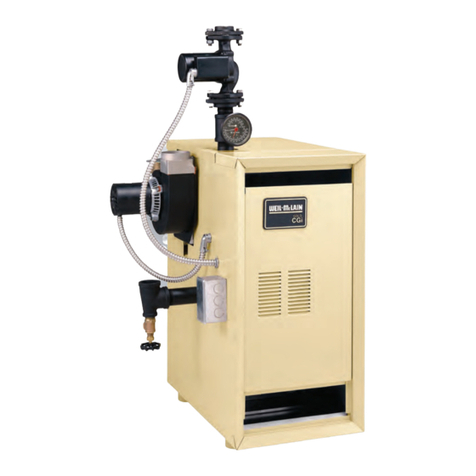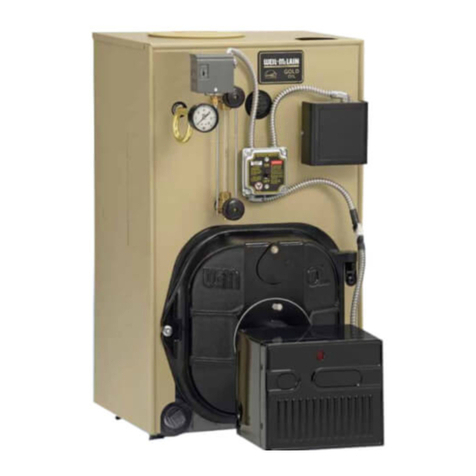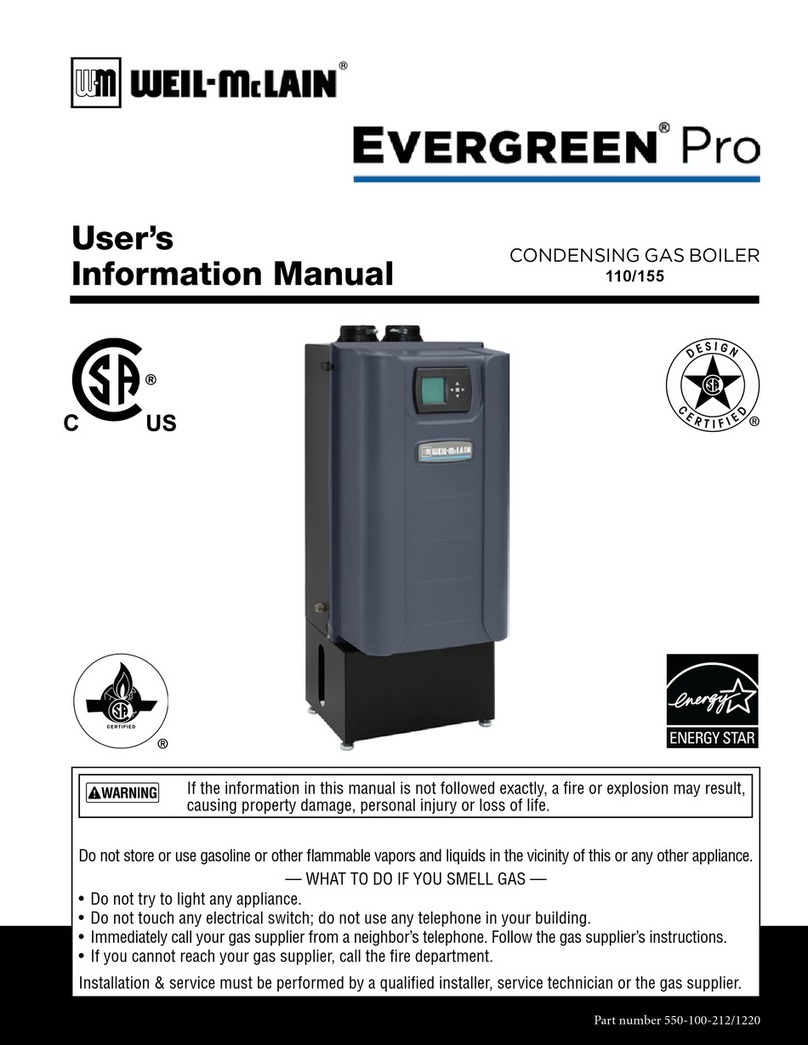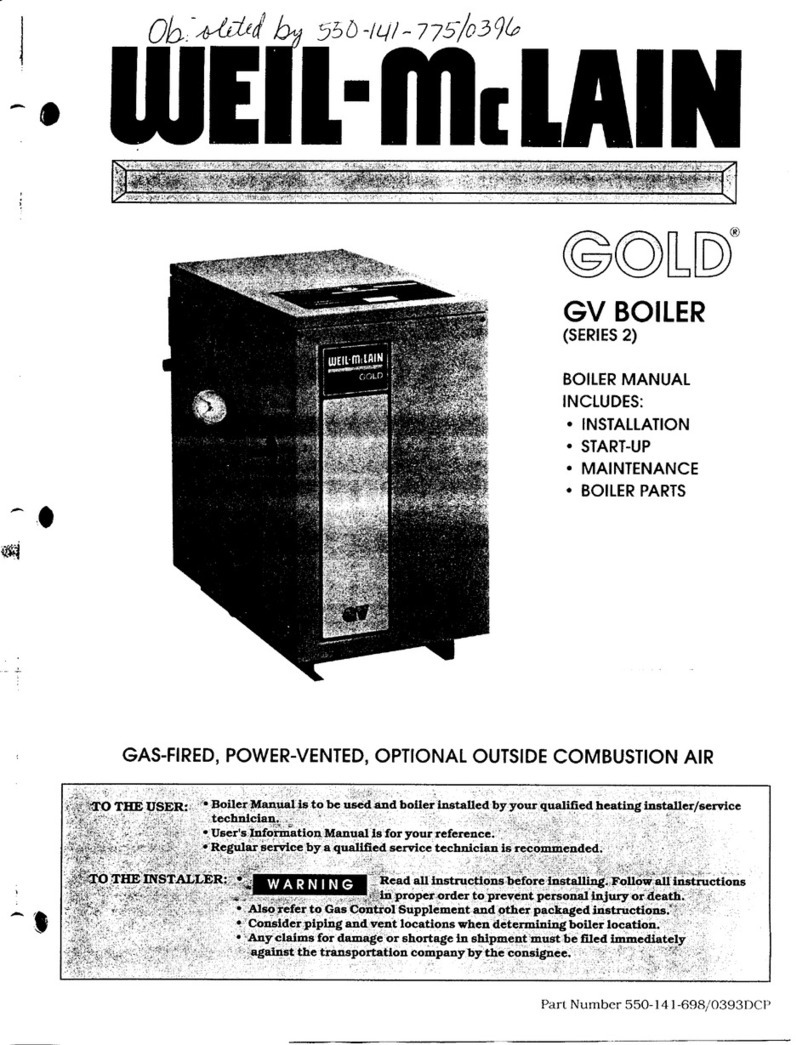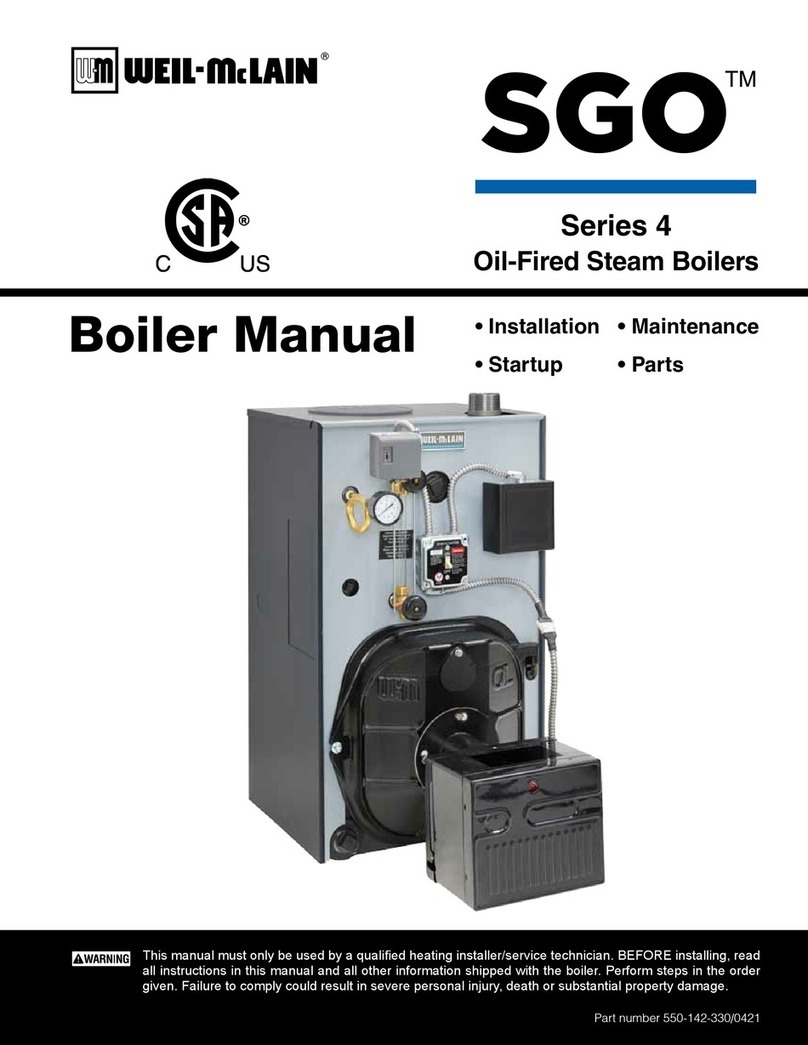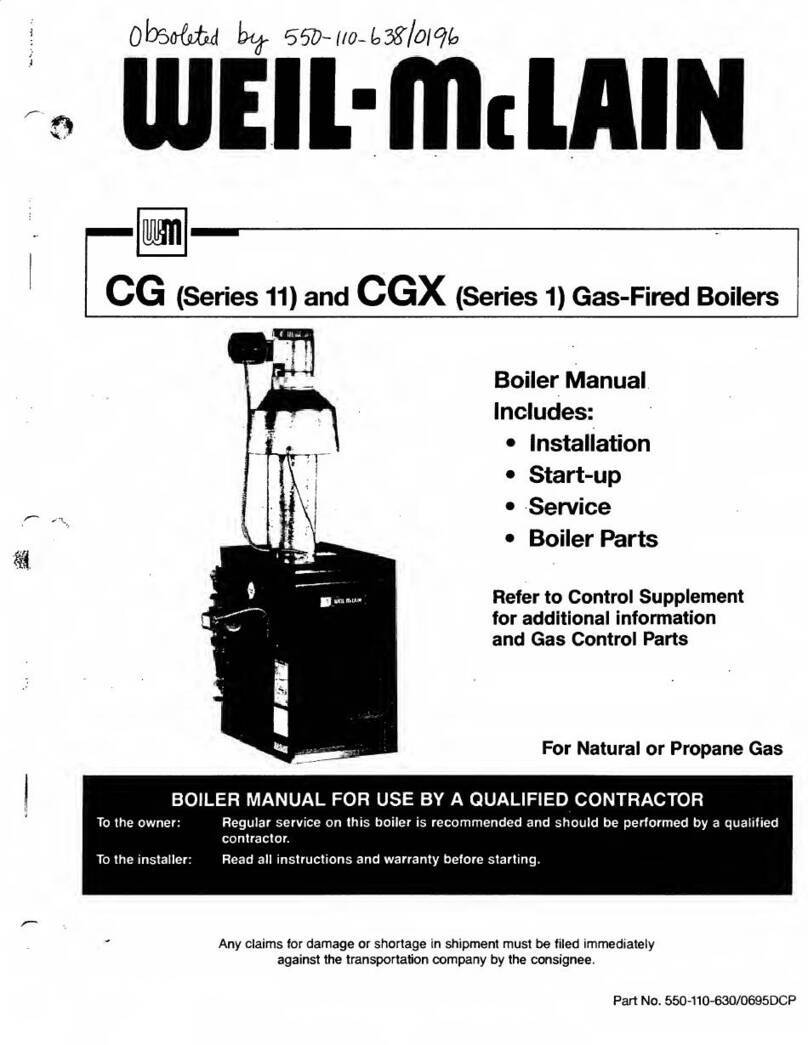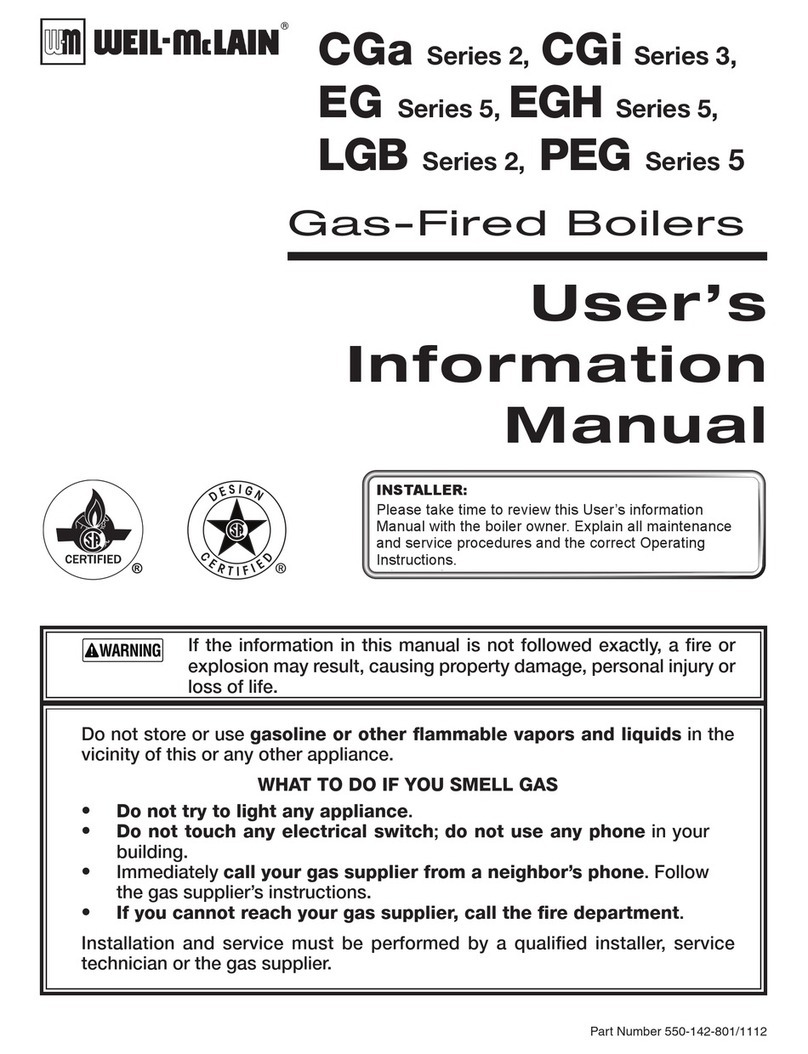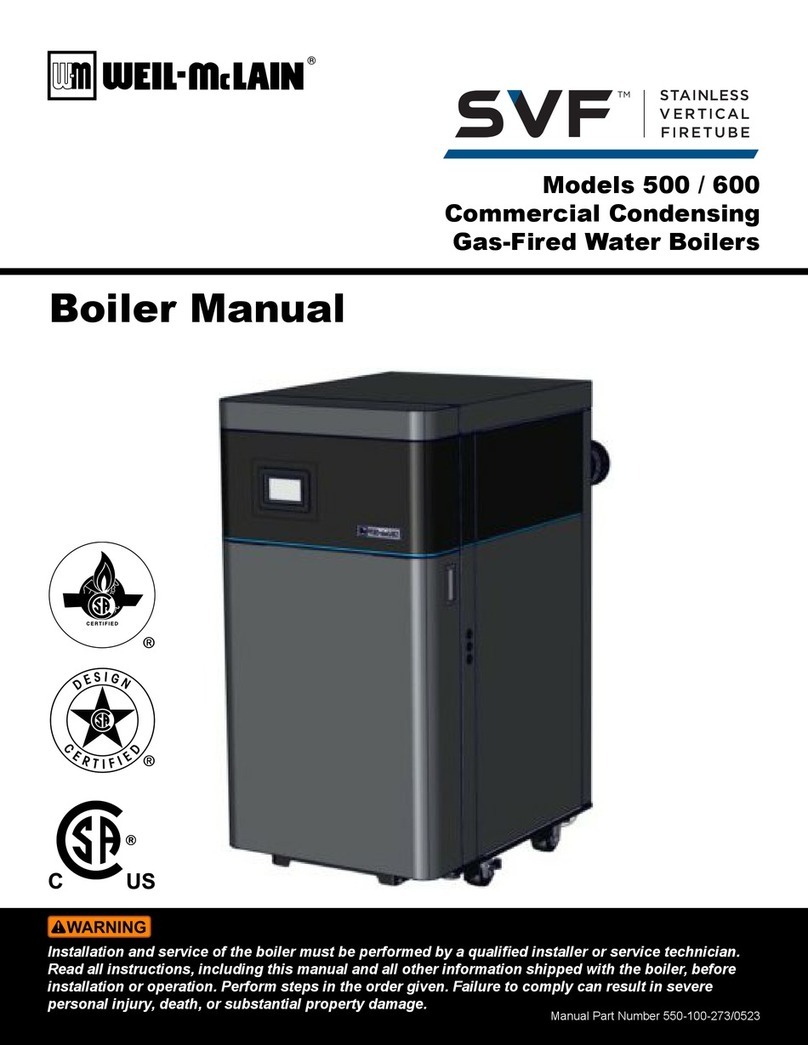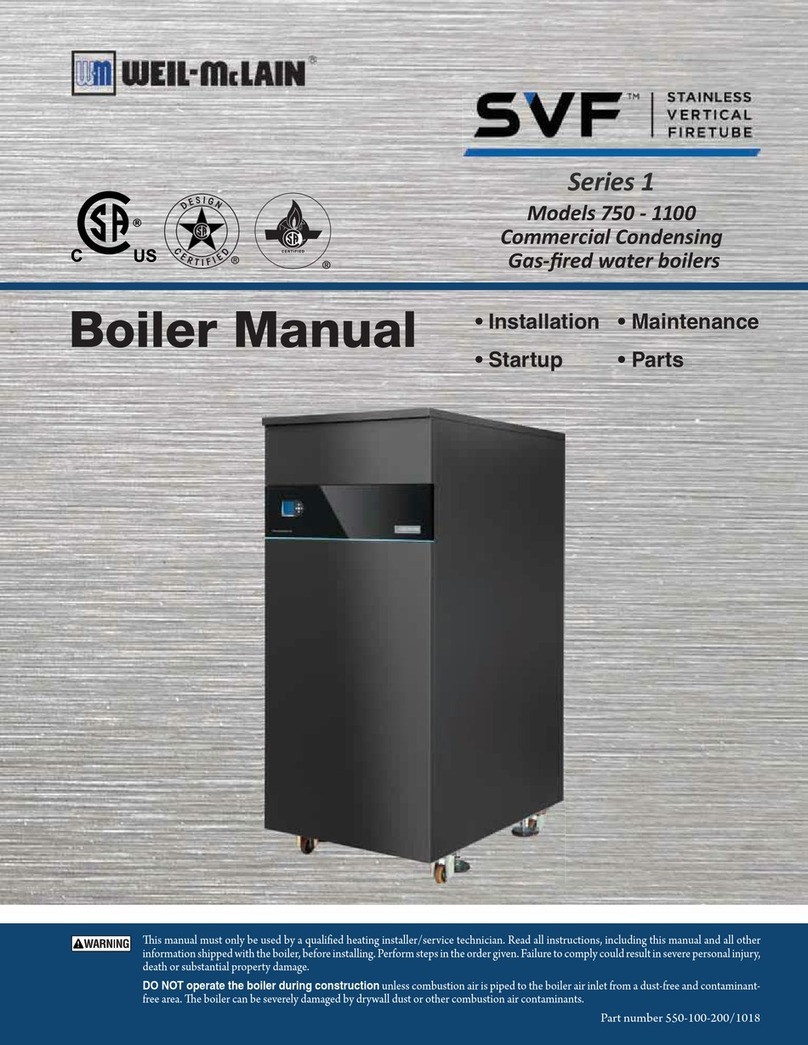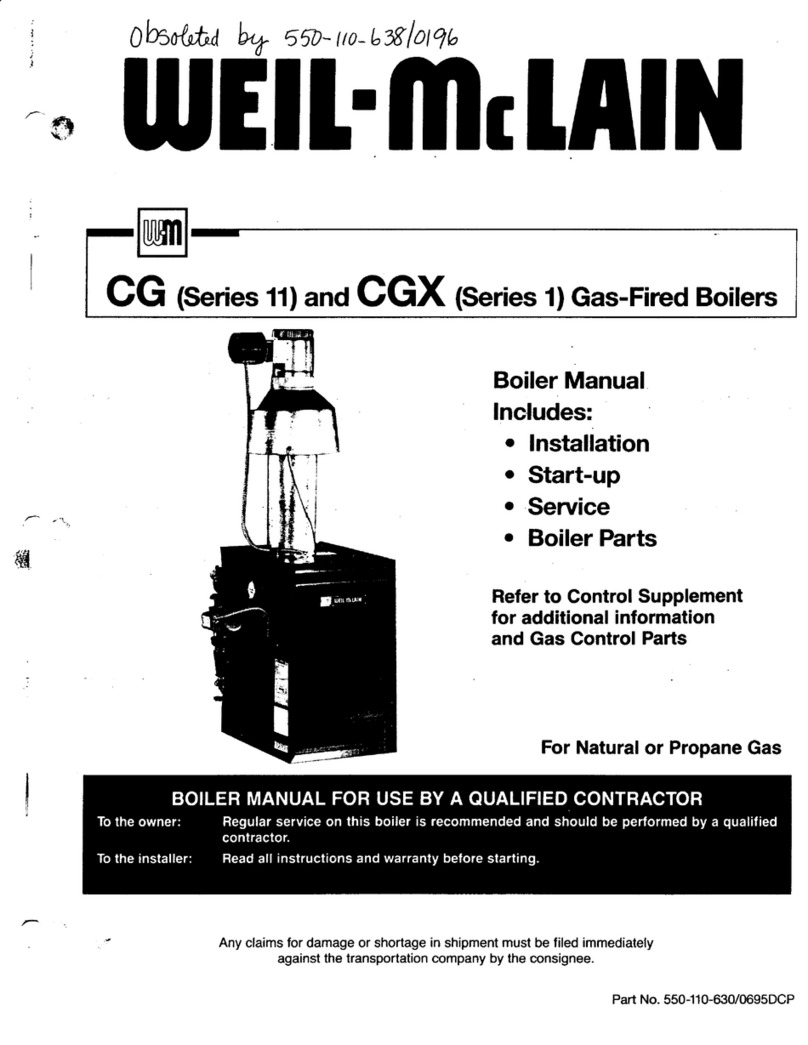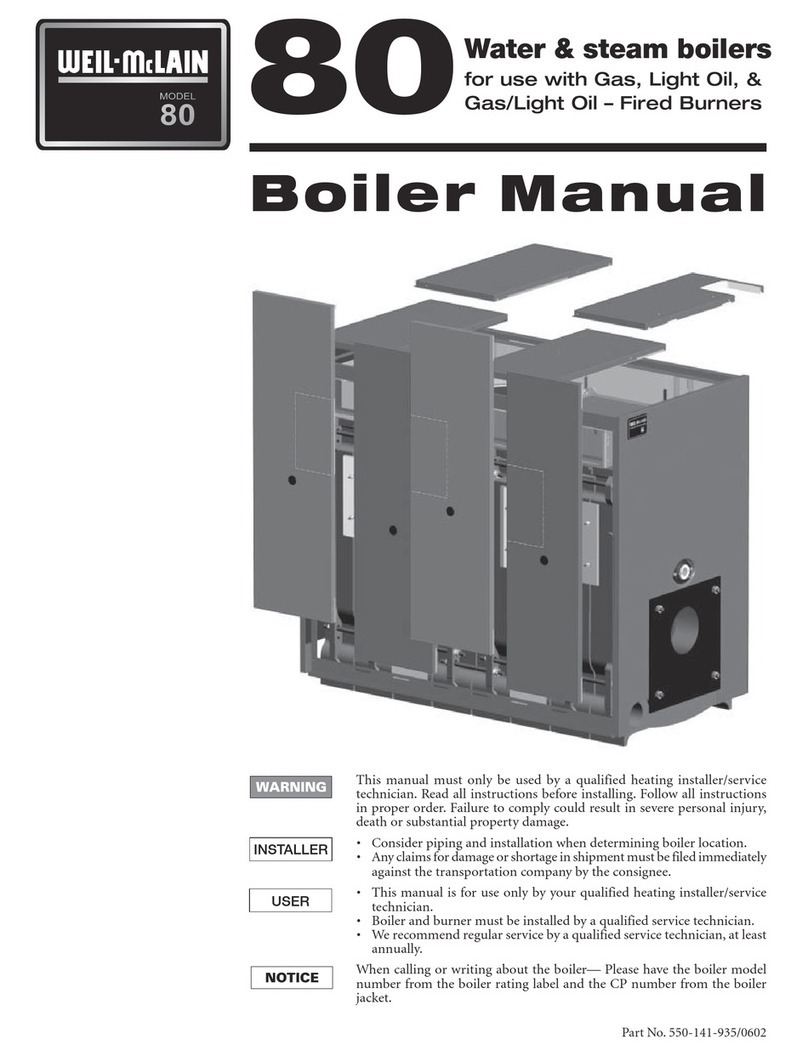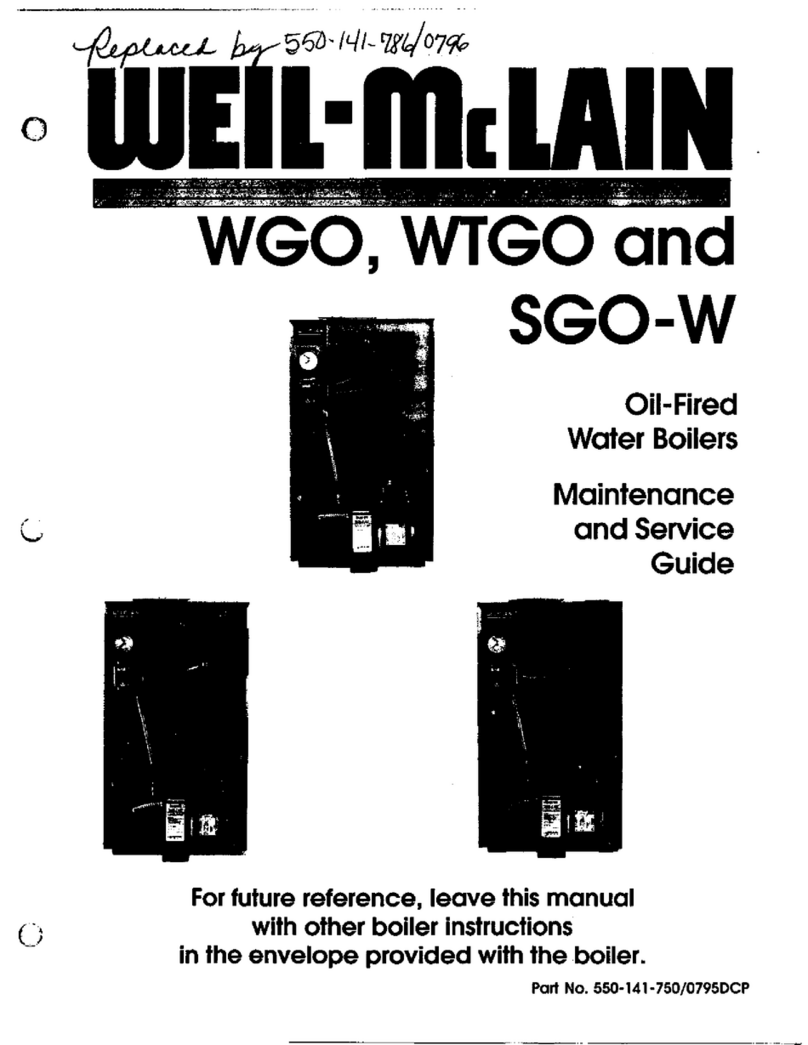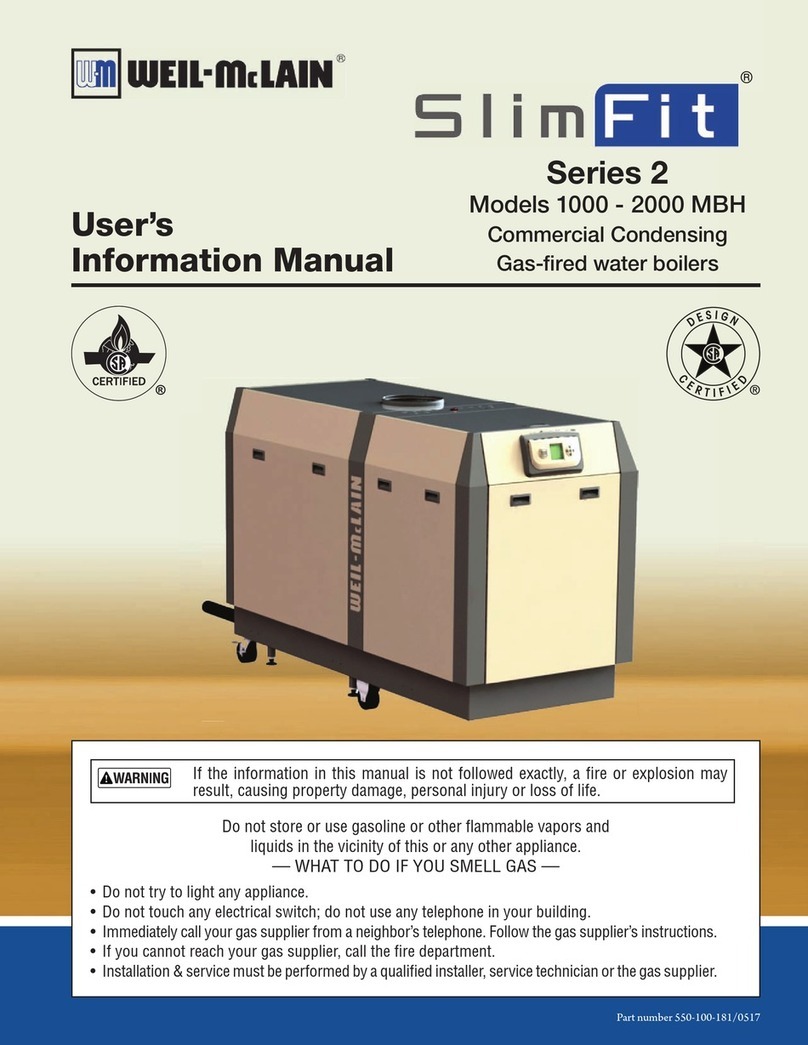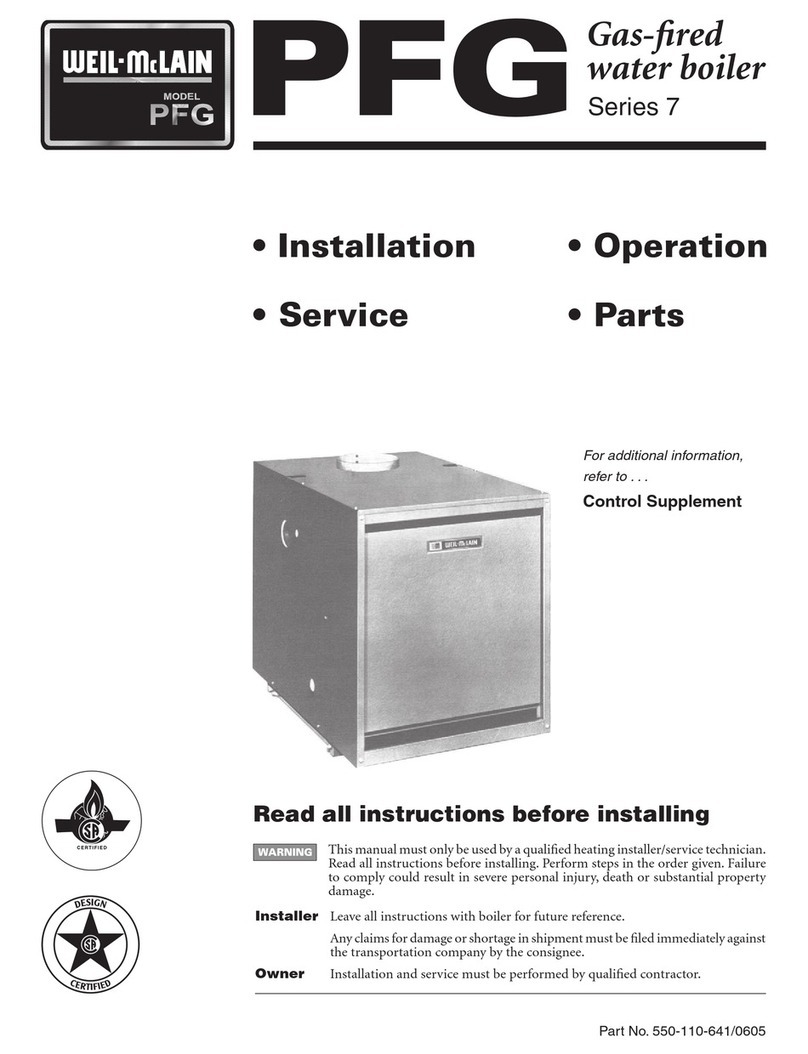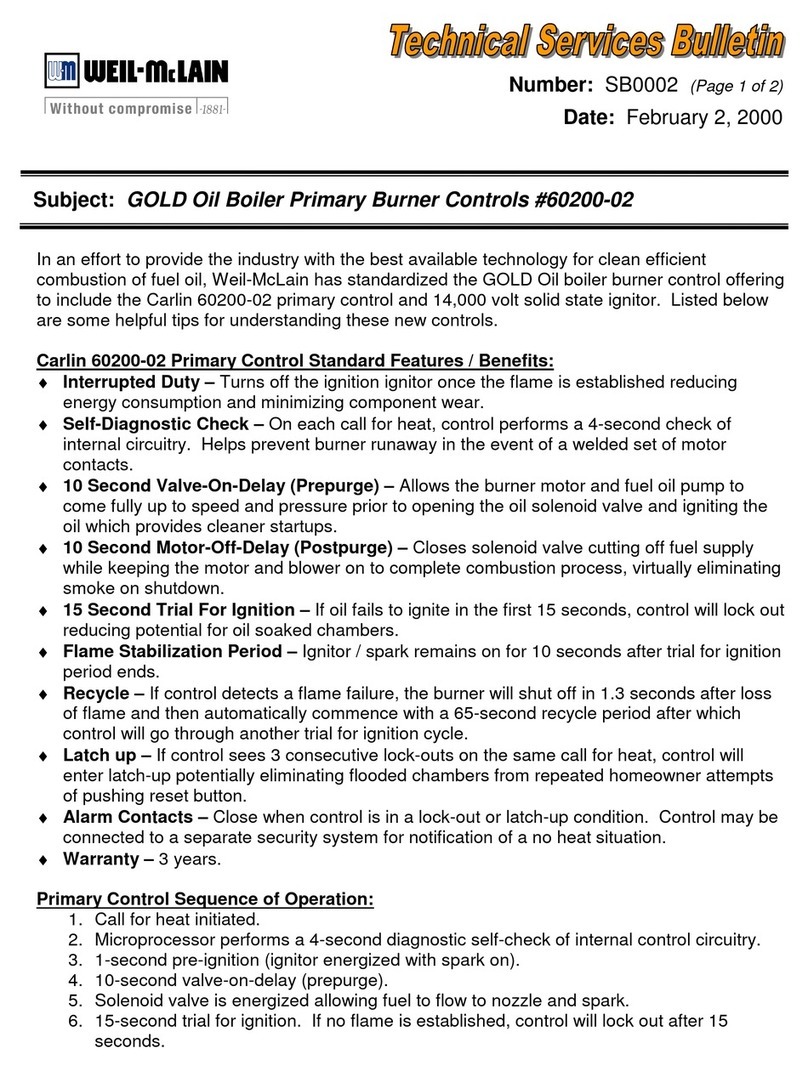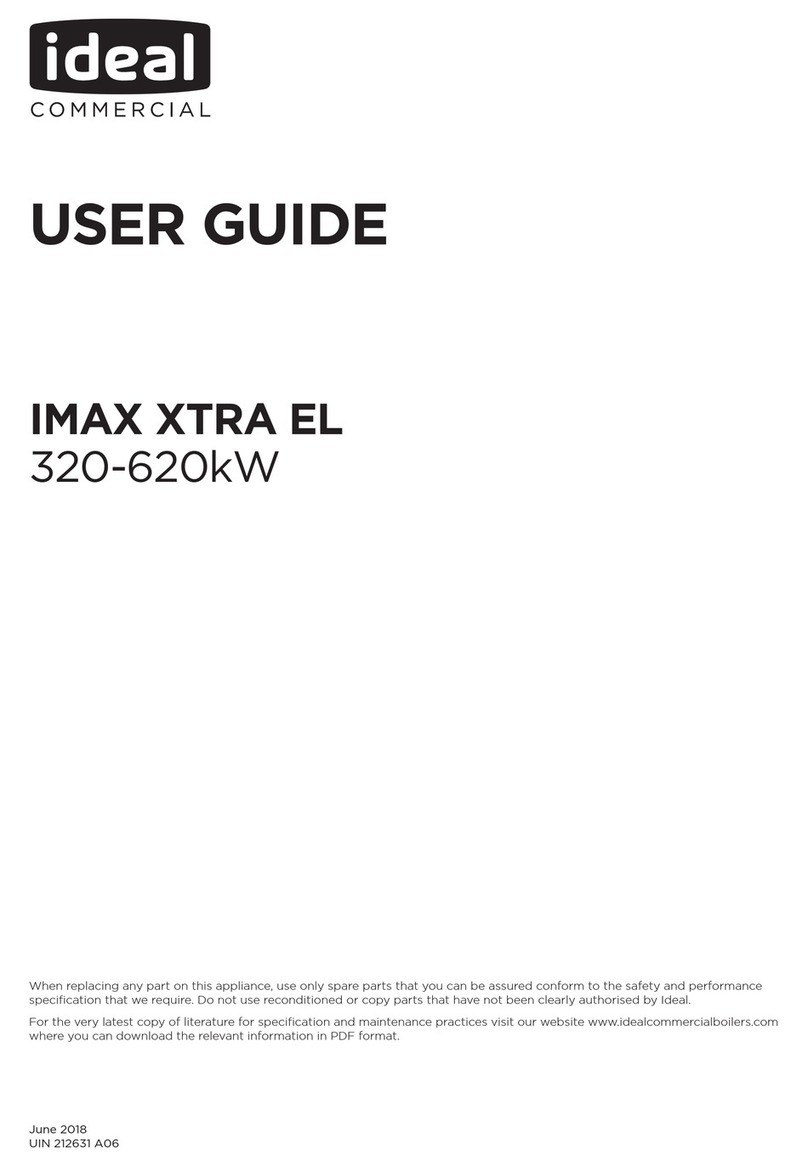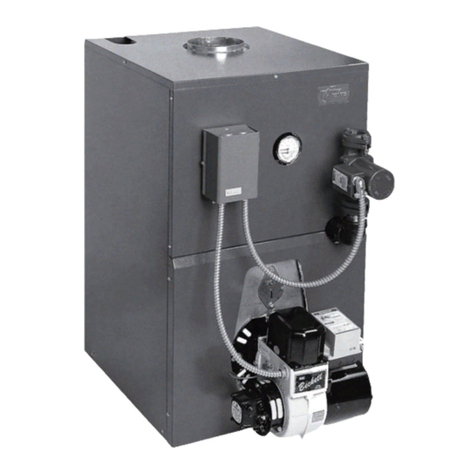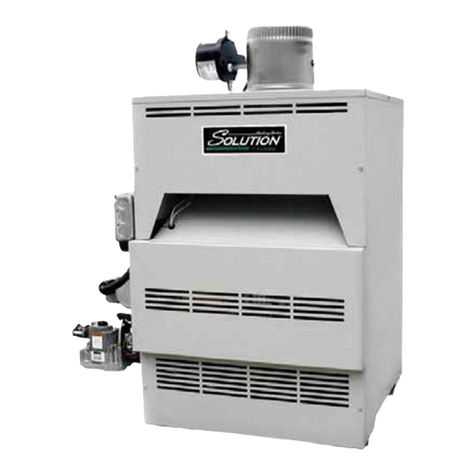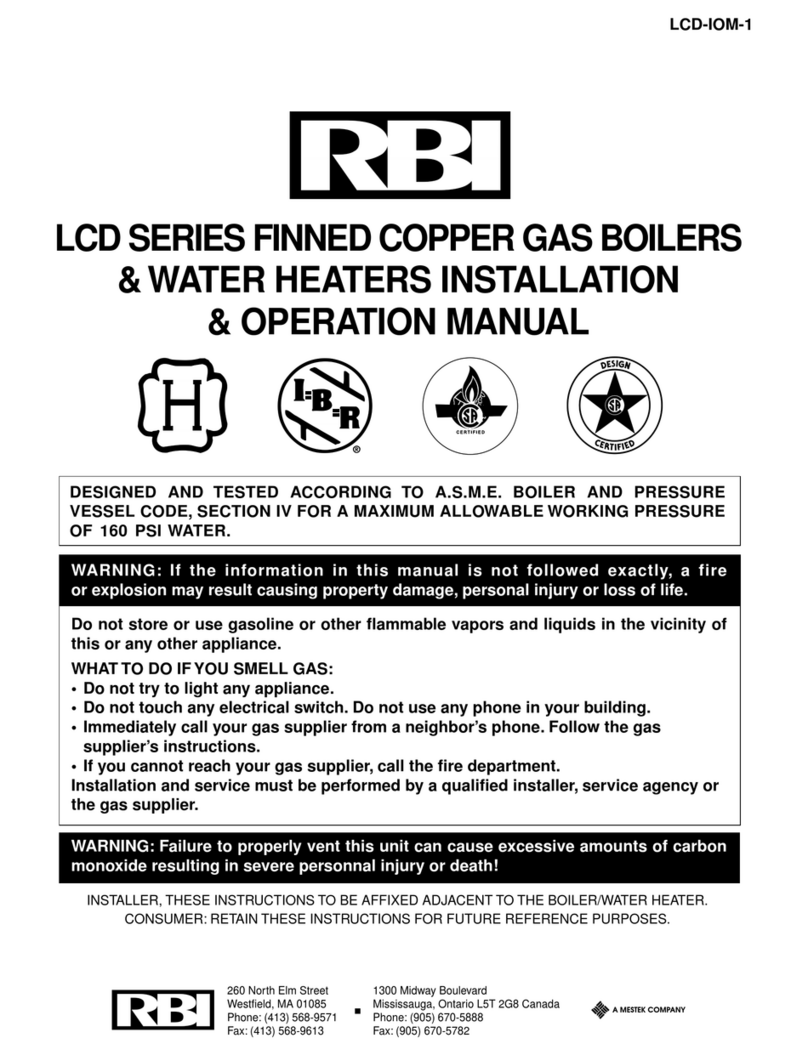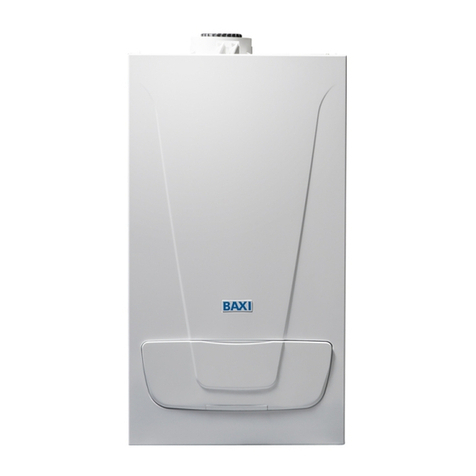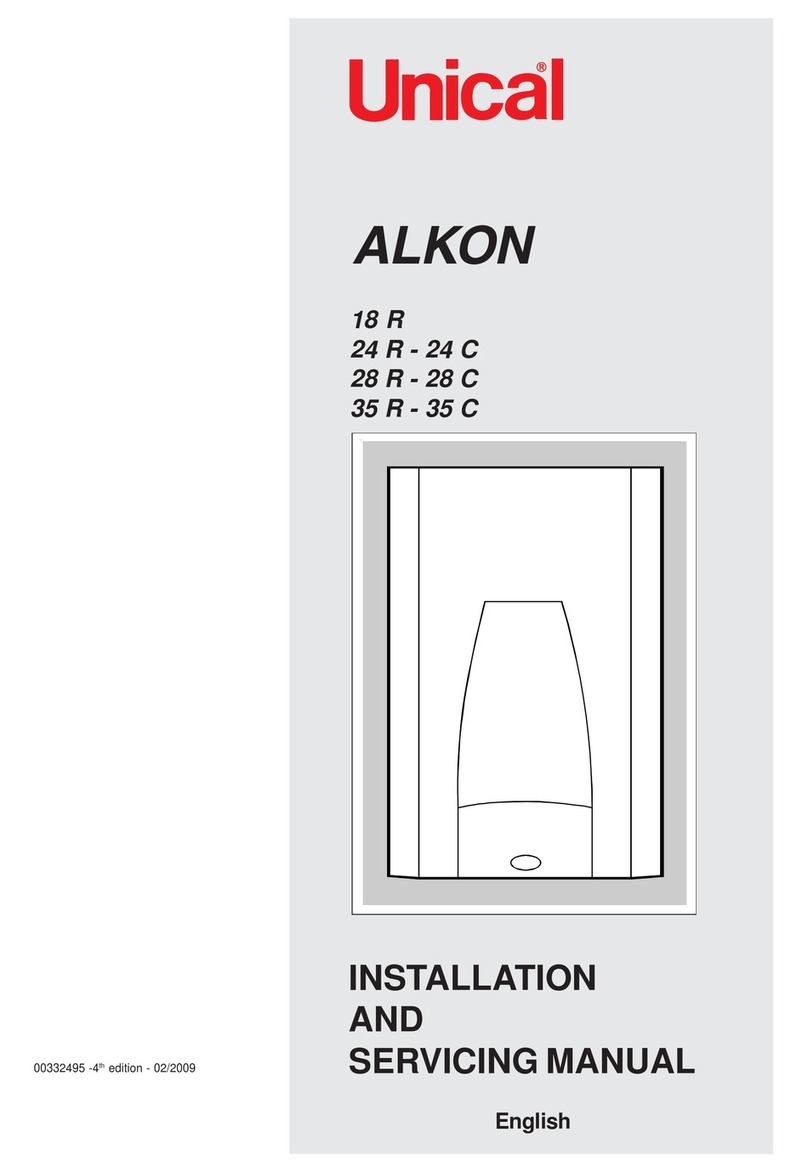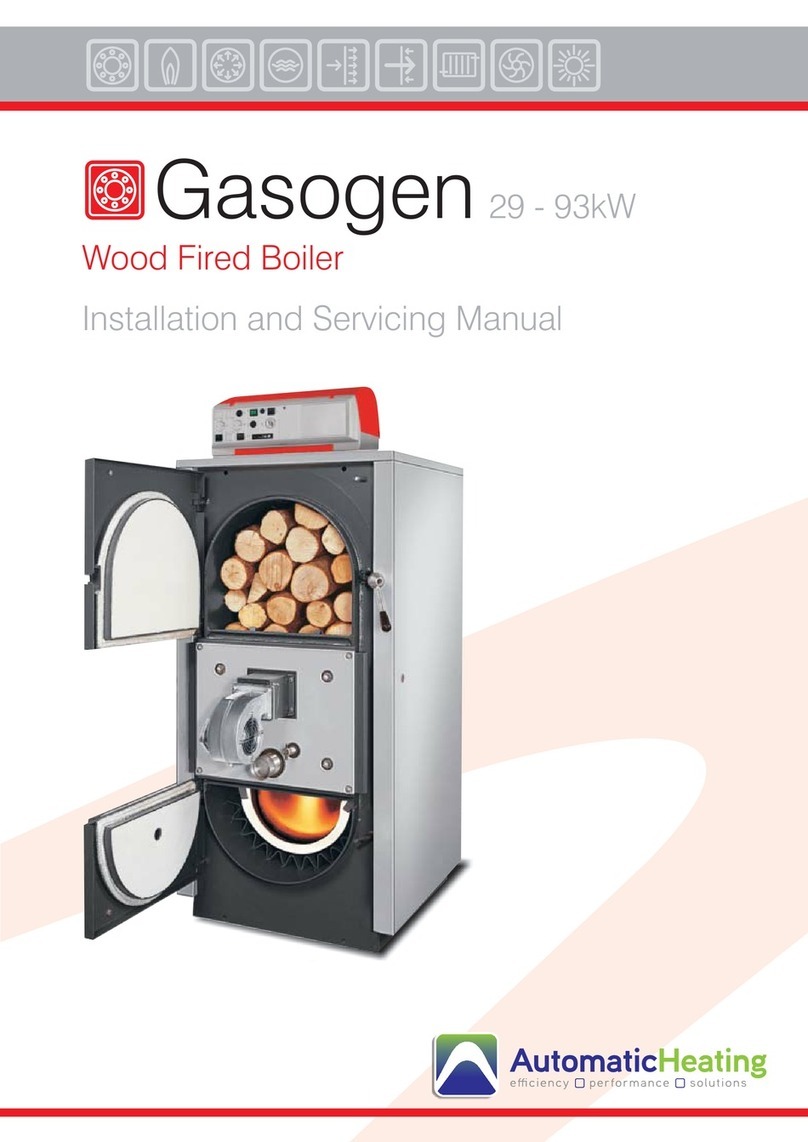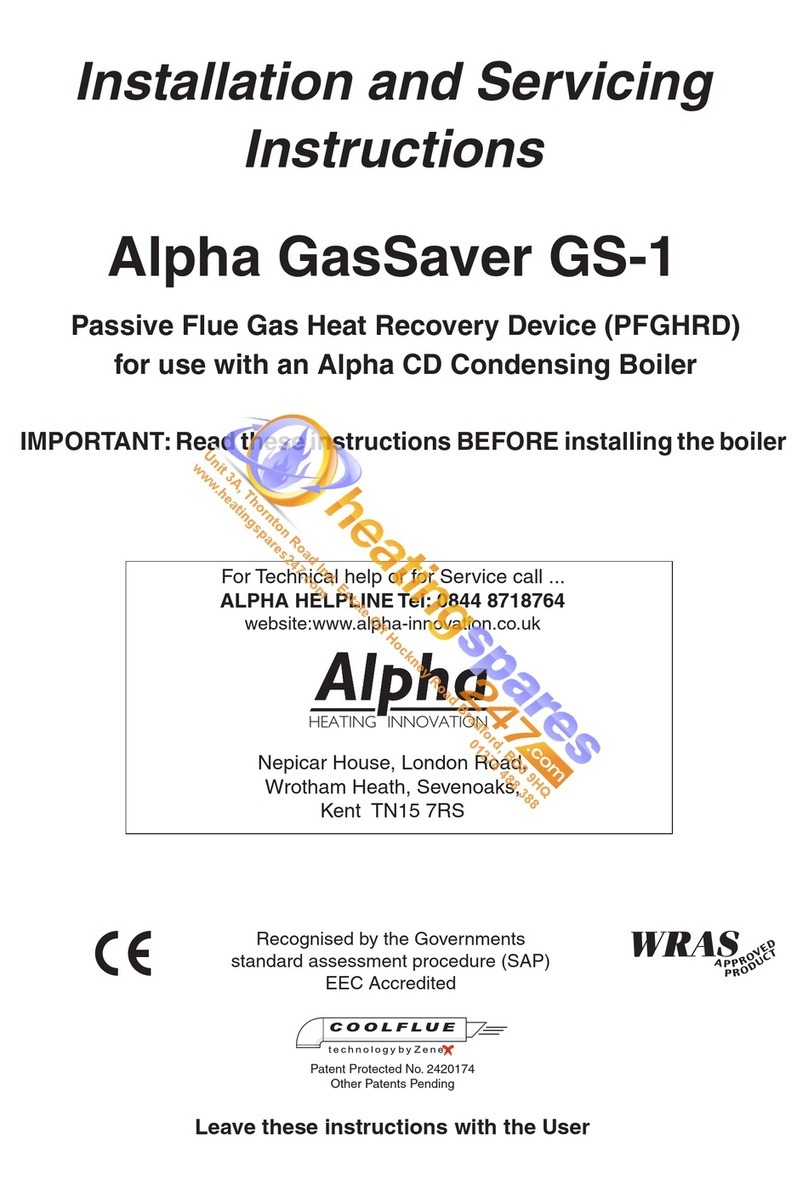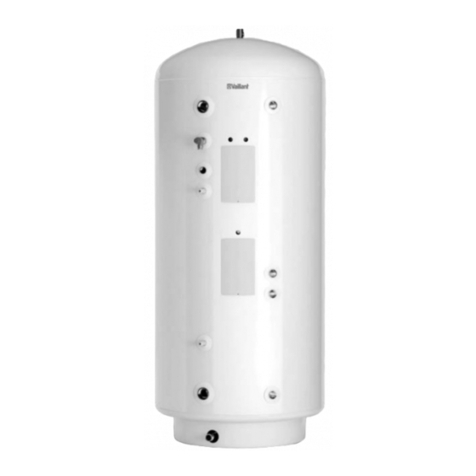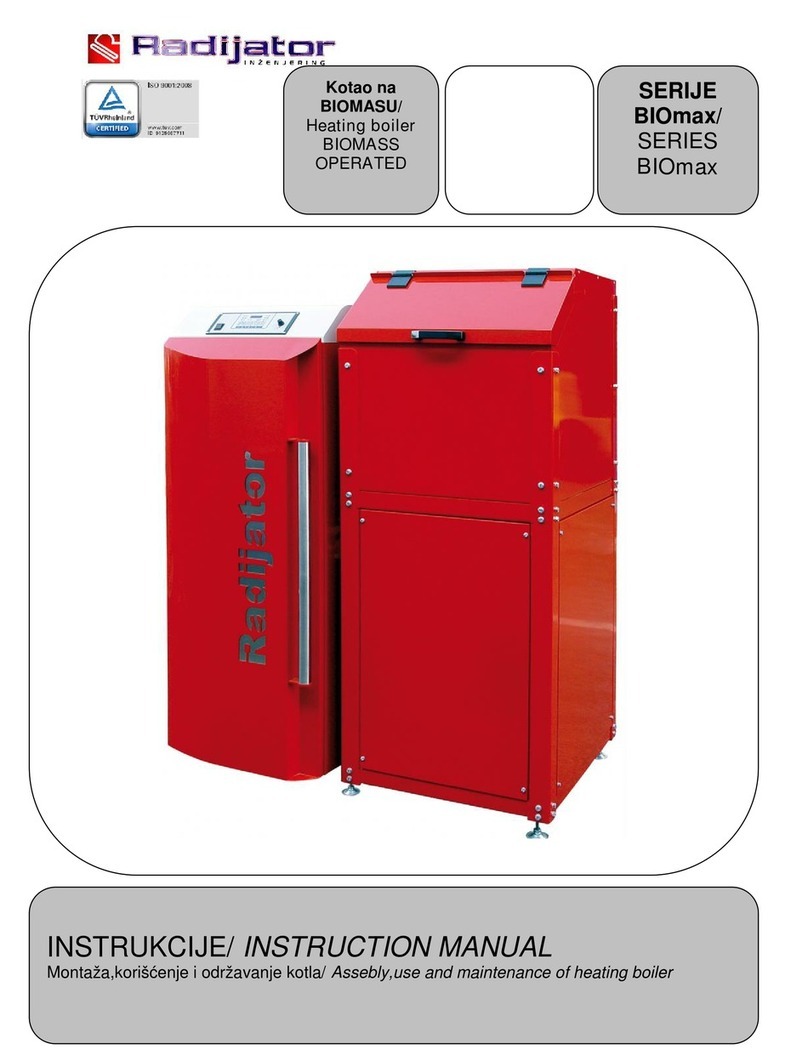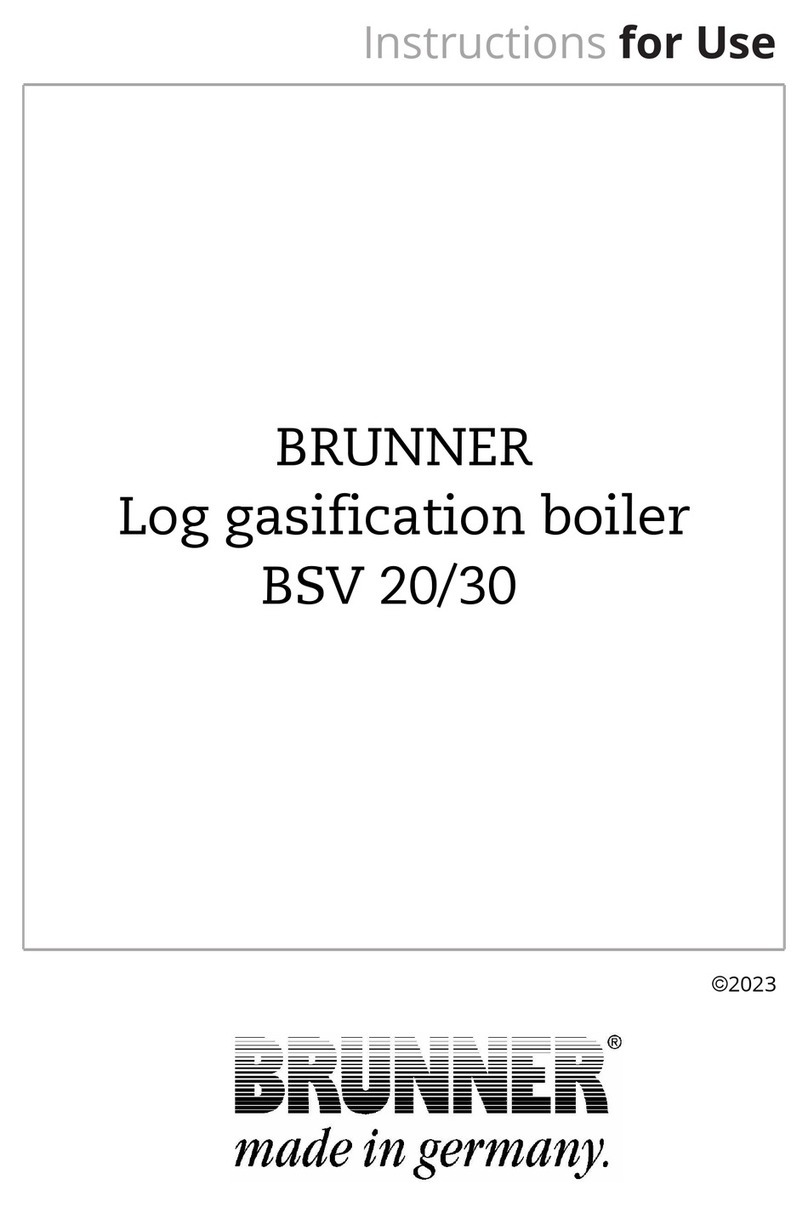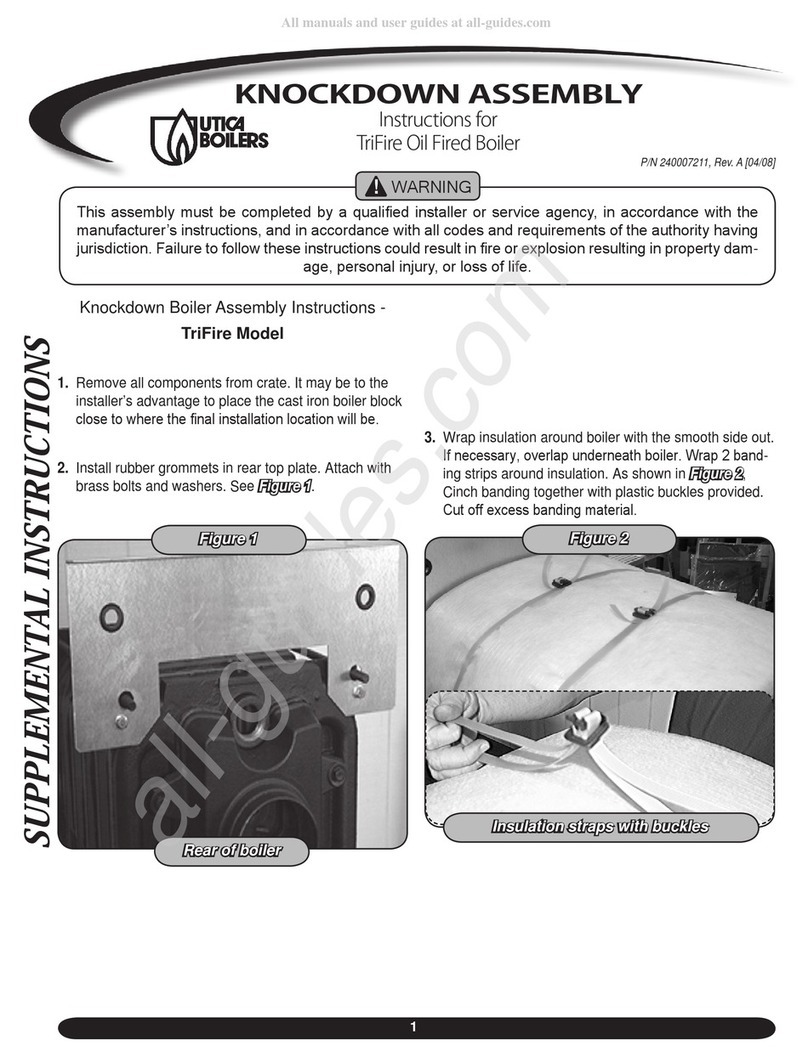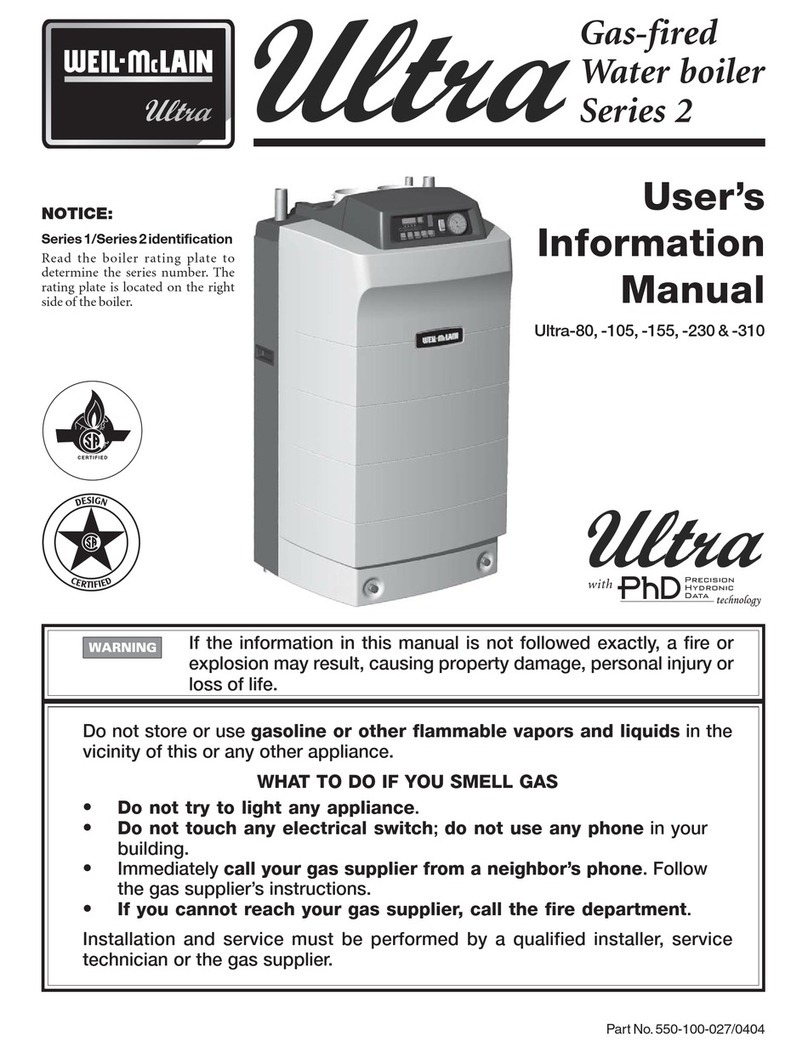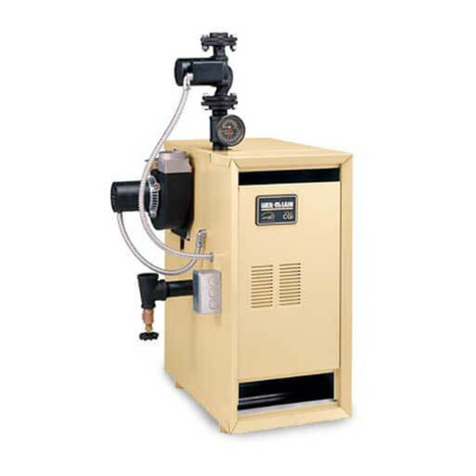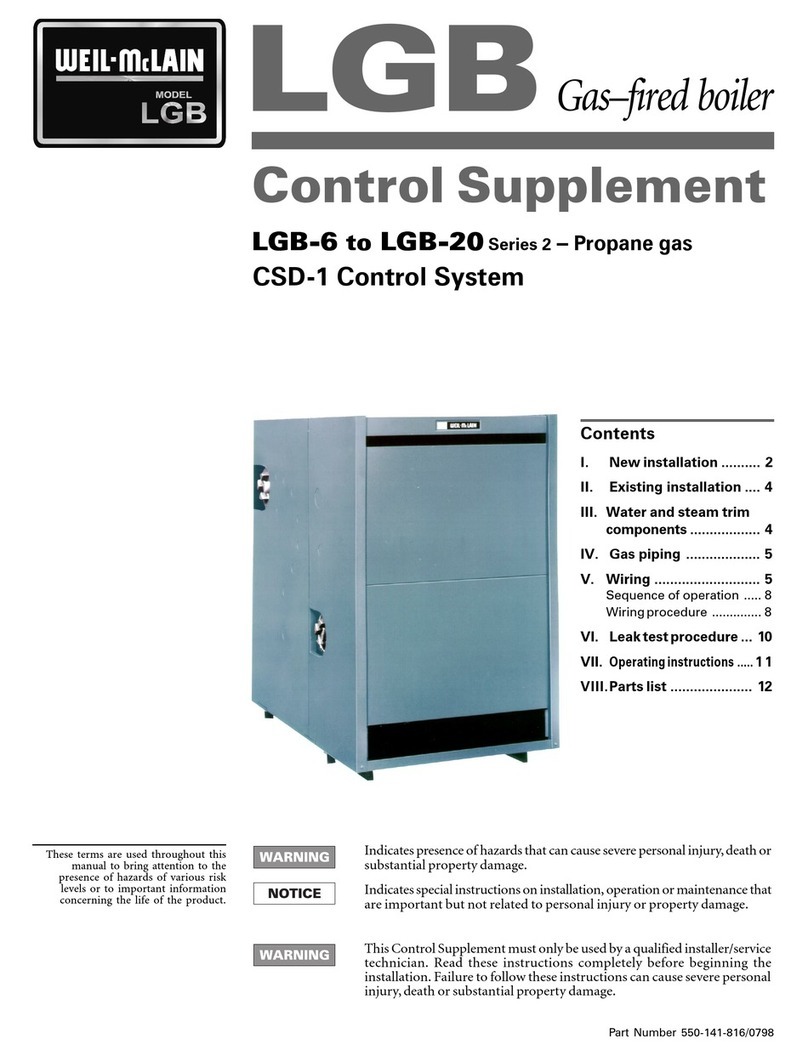
STOP!! — Read before proceeding
Part number 550-100-271/1021 3
ECO®Tec series 2 gas-fired water boiler – user’s information manual
Should overheating of boiler occur or gas supply fail to
shut o, DO NOT turn o or disconnect electrical supply to circula-
tor. Instead, shut o the gas supply at a location external to the appliance.
If any part of a boiler, burner or its controls has
been sprayed with or submerged under water,
either partially or fully, DO NOT attempt to op-
erate the boiler until the boiler has been either
replaced or completely repaired, inspected,
and you are sure that the boiler and all compo-
nents are in good condition and fully reliable.
Otherwise, by operating this boiler, you will cause
a re or explosion hazard, and an electrical shock
hazard, leading to serious injury, death, or substan-
tial property damage. See the instructions at right.
Saltwater Damage — e exposure of boiler components
to saltwater can have both immediate and long-term eects.
While the immediate eects of saltwater damage are similar
to those of freshwater (shorting out of electrical components,
washing out of critical lubricants, etc.), the salt and other
contaminants le behind can lead to longer term issues af-
ter the water is gone due to the conductive and corrosive
nature of the salt residue. Therefore, Weil-McLain equip-
ment contaminated with saltwater or polluted water will no
longer be covered under warranty and should be replaced.
Electrical Damage — If any electrical component or wiring
came into contact with water, or was suspected to have come
into contact with water, do not use this boiler. Immediately call
a qualied service technician to inspect the boiler and to replace
any part of the control system and any gas control that has been
in contact with water.
Failure to adhere to the guidelines on this page can result in severe personal
injury, death or substantial property damage.
Boiler service and maintenance —
• To avoid electric shock, interrupt electrical
supply before performing maintenance.
• To avoid severe burns, allow boiler to cool before perform-
ing maintenance.
• You must maintain the boiler as outlined in the manual and
have the boiler started up and serviced at least annu-
ally by a qualied service technician to ensure boiler/
system reliability.
Boiler operation —
• Do not block ow of combustion or ventilation air to boiler.
is boiler is equipped with a control which will automatically
shut down the boiler should air or vent be blocked. If vent or
air blockage is easily accessible and removable, remove it. e
boiler should attempt to restart within an hour. If blockage is
not obvious or cannot be removed, have the boiler and system
checked by a qualied service technician.
Combustion air —
• DO NOT obstruct the combustion air intake or
expose the air intake to corrosive chemicals (see
next page).
Carbon monoxide detector —
• A carbon monoxide detector that is wired on the same
electrical circuit as the boiler is strongly recommended.
Boiler water —
• Do not use petroleum-based cleaning or sealing compounds
in boiler system. Gaskets and seals in the system may be dam-
aged. is can result in substantial property damage.
• Leaks in boiler or piping must be repaired at once
to prevent make-up water. Use this boiler ONLY in
a closed-loop system. Continual fresh make-up water
will reduce boiler life. Mineral buildup in heat exchangers
reduces heat transfer, overheats the materials, and causes
failure. Addition of oxygen carried in by make-up water can
cause internal corrosion.
• Do not add cold water to hot boiler. ermal shock can
cause heat exchanger to crack.
Water chemistry
Water quality must be maintained as described in boiler manual.
Water pH between 7.0 and 8.5
• Maintain boiler water pH between 7.0 and 8.5. Check with
litmus paper or have chemically analyzed by water treatment
company.
• If pH diers from above, consult local water treatment com-
pany for treatment needed.
Hardness less than 7 grains
Consult local water treatment companies for unusually hard
water areas (above 7 grains hardness).
Chloride concentration must be LESS
THAN 50 ppm
• Filling with chlorinated fresh water should be acceptable since
drinking water chloride levels are typically less than 5 ppm.
• Do not use the boiler to directly heat swimming pool or spa
water.
• Do not ll boiler or operate with water containing chloride
in excess of 50 ppm.
Freeze protection uids —
• NEVER use automotive or standard glycol antifreeze. Use
only freeze-protection uids made for hydronic systems.
Follow all guidelines given by the antifreeze manufacturer.
oroughly clean and ush any replacement boiler system
that has used glycol before installing the new boiler. Use only
the products listed by Weil-McLain for use with this boiler.
See boiler manual for details.
Frozen Water Damage Hazard
Residences or buildings that are unattended in severely cold
weather, boiler system components failures, power outages, or
other electrical system failures could result in frozen plumbing
and water damage in a matter of hours. For your protection, take
preventative actions such as having a security system installed
that operates during power outages, senses low temperature, and
initiates an eective action. Consult with your boiler contractor
or a home security agency.
